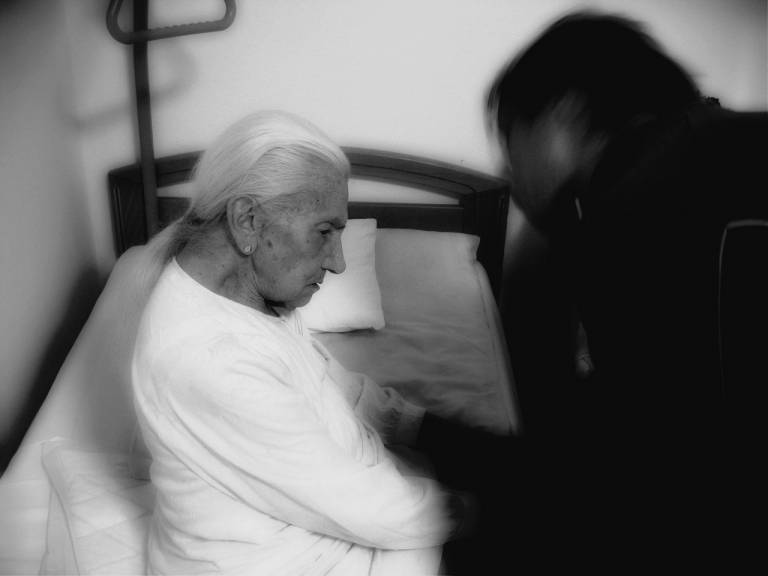People living with dementia are more likely to end up in hospital
22 July 2019
Hospital admission rates are 42% higher for people living with dementia and hospital admissions could be linked to taking multiple medications and having difficulty with day-to-day tasks.

According to a new research paper published in BMC Medicine, hospital admission rates in people with dementia are higher than for people without dementia, even taking into account their level of physical illness, and that older age, physical illness, multiple medications and functional impairment predicted risk of admission.
“People living with dementia are more likely to experience confusion and delirium; they’re less likely than other hospital patients to receive adequate pain relief; and often will decline functionally during their hospital stay,” said senior researcher Dr Andrew Sommerlad, UCL Psychiatry.
“Admissions are longer and costlier. Often people with dementia do not return to their own homes after admissions and instead move to residential or nursing home care, so identifying potential strategies to reducing avoidable hospital admissions is important,” he added.
The article is a review paper of 34 studies of 277,432 people with dementia, spanning three continents. The researchers looked for factors which might explain the high risk of hospital admissions of people with dementia and, as well as the expected findings that being older and more physically unwell increase admission risk, they found that polypharmacy and functional impairment were associated with hospitalisation.
People with dementia may be more likely to be admitted to hospital due to a combination of factors. Recognition and treatment of medical conditions may be delayed, for example: an infection may be missed because they are less able to communicate their needs, so they end up in A&E because they didn’t get treatment sooner. People with dementia may be more likely to be kept in hospital once they present to medical services because discharging a confused person is viewed as risky.
“This is an important area for future work. Our study, as well as others’ findings, suggests some potentially promising future strategies,” said Dr Sommerlad.
“Effective future strategies may include reviewing medication and stopping medications which are ineffective or may cause adverse effects; supporting family carers to recognise physical illness and seek early medical attention; and making care plans which reflect a person with dementia’s wishes for their care.”
The researchers are planning a trial looking into ways to reduce unnecessary hospital admissions for people with dementia.
Possible solutions might be a more integrated, holistic approach to physical healthcare for people with dementia from the point of diagnosis, regular consults with their GPs and better checks to ensure they’re taking medication as prescribed.
 Close
Close

